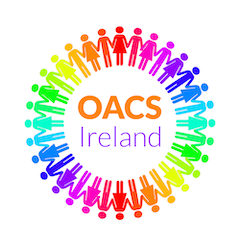Crucial Update on Topiramate (Topamax) for women with epilepsy and other conditions of childbearing potential.
Updated the 24/10/2022
During the summer, a new piece of research suggested that the potential neurodevelopmental impacts associated with the anti-seizure medication (ASM) Topiramate (Topamax) if prescribed during pregnancy may be more significant than previously thought.
The paper led to the European Medicines agency recommending that, “women with epilepsy are advised to avoid becoming pregnant whilst being treated with topiramate, and to consult their doctor for advice in case they wish to become pregnant”.

You can read the article we posted about this back in July by visiting the “News” section of our website link here: https://bit.ly/3slVFLj
This research also led to an immediate meeting of the European Medicines Agency’s Pharmacovigilance Risk Assessment Committee (PRAC) to discuss the paper.
This triggered an initial review of the paper’s findings from July onwards and in September, the PRAC decided that a full in-depth review of the research should be conducted. You can read more on this decision by visiting the ‘European Medicine’s Agency website.
In a further development on this matter, we have been informed by the Health Products Regulatory Authority that a ‘Dear Healthcare Professional Communication (DHPC)’ has now been issued by the Marketing Authorisation Holder for Topamax in Ireland, Janssen Sciences Ireland. OACS Ireland welcomes this communication. However, Ireland could do a lot more could be before the EMA outcome.
This communication takes account of the emerging research and aims to ensure that both prescribers and pharmacists are aware of the ongoing PRAC review. It issues specific advice to Healthcare Professionals regarding the use of the medication in women with epilepsy, migraine prophylaxis. However, it is known that Topamax, Topiramate is used for other conditions.
The communication is available to download in full here: Important Safety Information – Topamax (topiramate). However, we have outlined key points below.
Topiramate – reminder of current warnings and restrictions regarding use in women of childbearing potential and during pregnancy.
The communication also gives the below specific advice for both prescribers and pharmacists.
It is equally important that women with epilepsy, migraine prophylaxis and other conditions are aware of the advice that is contained within this new communication. For this reason, we are highlighting the following:
For migraine prophylaxis: topiramate is contraindicated in pregnancy and in women of childbearing potential if not using a highly effective method of contraception.
In reference to all conditions this medication is used for in women and young girls, the communication notes the following:
- consider alternative therapeutic options in women of childbearing potential.
- if topiramate is used in women of childbearing potential, the use of highly effective contraception should be advised.
- if a woman plans a pregnancy, a preconceptional visit is recommended in order to reassess thetreatment, and to consider other therapeutic options.
- sudden discontinuation of therapy should be avoided as this may lead to breakthrough seizures that could have serious consequences for the woman and the unborn child
- initiation of treatment with topiramate in any woman of childbearing potential, pregnancy testing should be performed, and a highly effective contraceptive method advised.
- patients should be fully informed of the risks related to the use of topiramate during pregnancy.
- the possibility of decreased contraceptive efficacy should be considered in patients taking combination oral contraceptive products with Topamax.
- patients taking estrogen containing contraceptives should be asked to report any change in their bleeding patterns – contraceptive efficacy can be decreased even in the absence of breakthrough bleeding.
When prescribing to women of childbearing potential this information is for Prescribers:
- Counsel your patient on the established risks of major congenital malformations, low birth weight and small for gestational age as well as the ongoing review of the available evidence relating to the possible risk of neurodevelopmental effects such as autism spectrum disorders and intellectual disabilities in children exposed to topiramate in the womb.
- Advise the patient to consult their doctor if they wish to become pregnant or immediately if she becomes pregnant so that her treatment can be reassessed.
- Perform a pregnancy test before initiation of treatment.
- Ensure the woman is using highly effective contraception and understands the need to continue use throughout treatment with topiramate. Consider the possibility of reduced effectiveness of combination oral contraceptives.
When dispensing to women of childbearing potential this information is for Pharmacists:
- Remind the patient of the risks from use of topiramate in pregnancy and reinforce the need to use effective contraception throughout treatment with topiramate.
- If a woman of childbearing potential reports that she is not using effective contraception, or is planning a pregnancy, or suspects she is pregnant, advise that she contacts her doctor as soon as possible.
- Always provide the patient with a copy of the package leaflet with her medicine. If dispensing outside of original packaging (i.e., broken bulk dispensing or repackaging) cannot be avoided, ensure a copy of the package leaflet is provided to the patient on each occasion that topiramate is dispensed. A copy of the package leaflet is available from www.medicines.ie and www.hpra.ie
We know this ongoing process of assessing the information reported in the recent research paper will be distressing for many women with epilepsy and other conditions who are taking topiramate and who are pregnant or planning a family. However, it is also vital that all patients are provided with the most accurate and up to date information available.
OACS Ireland are here to support all families impacted by Foetal Anticonvulsant Syndromes (FACS). Foetal Anticonvulsant Syndrome is caused when the anticonvulsant medicine a woman takes during pregnancy affects the foetus. If you feel your child /children are impacted by Topiramate please contact OACS Ireland info.oacsireland@gmail.com we will be happy to discuss your concerns should you have any and point you in the right direction.
If you are a woman with epilepsy, bipolar and/or other conditions who is thinking of starting a family, please discuss this with your medical team and discuss pre-conceptual planning so your medications can be adjusted, if need.
We will continue to provide further updates on this ongoing process as soon as further information becomes available. Document: DHPC Topirimate
Please do not stop taking your medication without first discussing this with your medical team.
